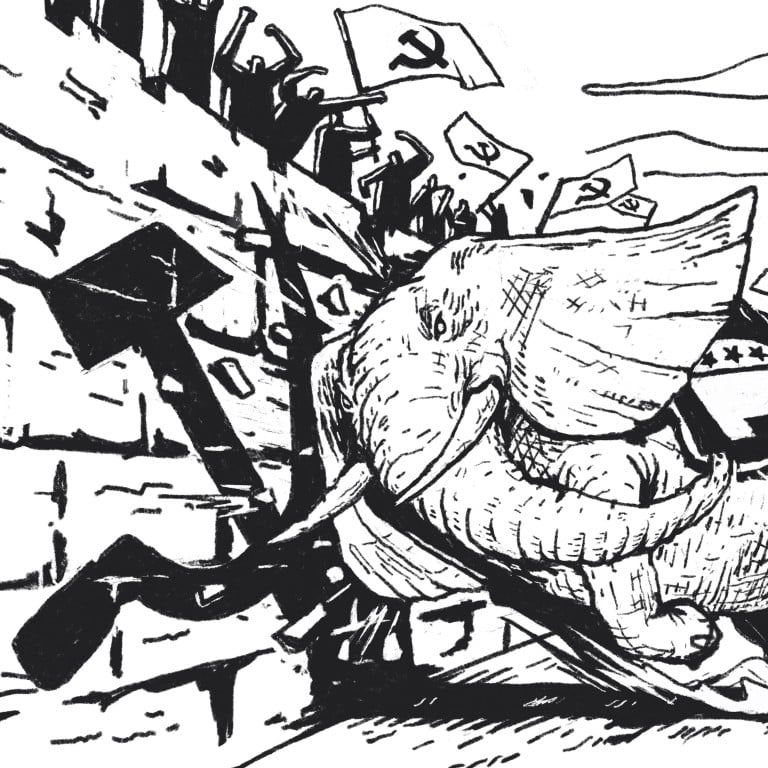
US presidential election: American attempts to demonise Chinese Communist Party spill over to become issue
- For most ordinary Chinese, US President Donald Trump’s hardball tactics have not had much effect, but they have created space for strategic hawks in his camp
- ‘With or without the China issue, the Republicans will accuse Democrats of practising socialism,’ a Chinese analyst says
As voters in the United States prepare for the presidential election in November, the South China Morning Post will explore the potential ramifications for China. In the fourth part of the series, Jun Mai looks at the unprecedented ideological debate about China, particularly efforts to delegitimise the Communist Party within the country and around the world.
If there’s a converging point of the political rhetoric from Washington and Beijing, governments caught in their worst tensions for decades, the answer might be the repeated mention of the Chinese Communist Party (CCP).
While Beijing has praised the party as the reason for all of China’s successes, from driving economic growth to fighting the pandemic, senior Trump administration officials say it is the core threat to the current world order and the American way of life.
But one analyst says there is an added dimension to such an effort.
“By separating the [Communist] Party from the people, it allows American leaders and its people to take on a virtually ‘missionary’ role, which some Chinese liberals welcome,” said Dali Yang, a political scientist at the University of Chicago.
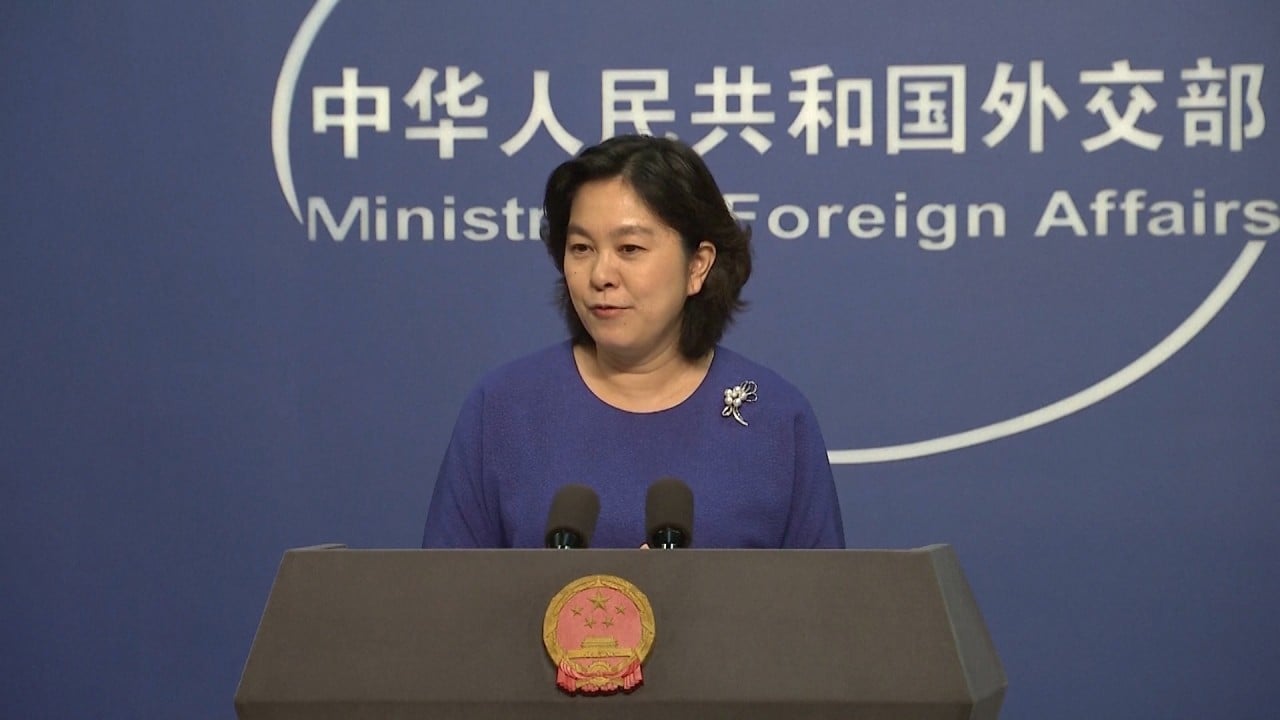
03:01
Banning 92 million Communist Party members from America ‘ridiculous’, Beijing says
Yang added that the rhetoric, which began before the election season, was likely to gain hold as public opinion turns against China.
The Trump administration’s suggestion that the Chinese people could turn against the CCP has met with a fierce rebuttal from Beijing, which sees the attack as a threat to its legitimacy. It has also started a policy debate in Washington, where there is concern about potential diplomatic damage and questions about how much such efforts could realistically achieve.
While Pompeo’s remarks were well received among dissidents and human rights advocates in China, the message has failed to resonate among most Chinese people, whom Trump officials say they “stand with”.
Inside China, even dissidents like Wu Yangwei, who has sought to challenge Beijing’s legitimacy for decades, admit that public support for the party in China is strong and real.
Joe Biden vows to end America’s reliance on Chinese medical equipment
“Realistically, because of the control of news media, education and personal interests, most people in China believe the CCP is inalienable from them,” said Wu, a dissident who lives in Guangzhou in southern China.
Nevertheless, Wu still hopes that more Chinese people will be awakened if the American pressure on China continues.
But for most ordinary Chinese, US President Donald Trump’s hardball tactics have not had much effect.
China’s banking regulator condemns US financial sanctions on Hong Kong
For example, Zheng Bo, a helmet exporter in Shenzhen, said he believed that China benefits from the strong leadership of the Communist Party.
“I don’t care if it’s a genuine statement [by Pompeo] or not,” said Zheng. “I can understand it, but I don’t agree with it.”
“China is a big country and for reasons such as cultural tradition, it needs a powerful government,” said Zheng, as he spoke disapprovingly of the anti-government protests in Hong Kong and the yellow vest movement in France.
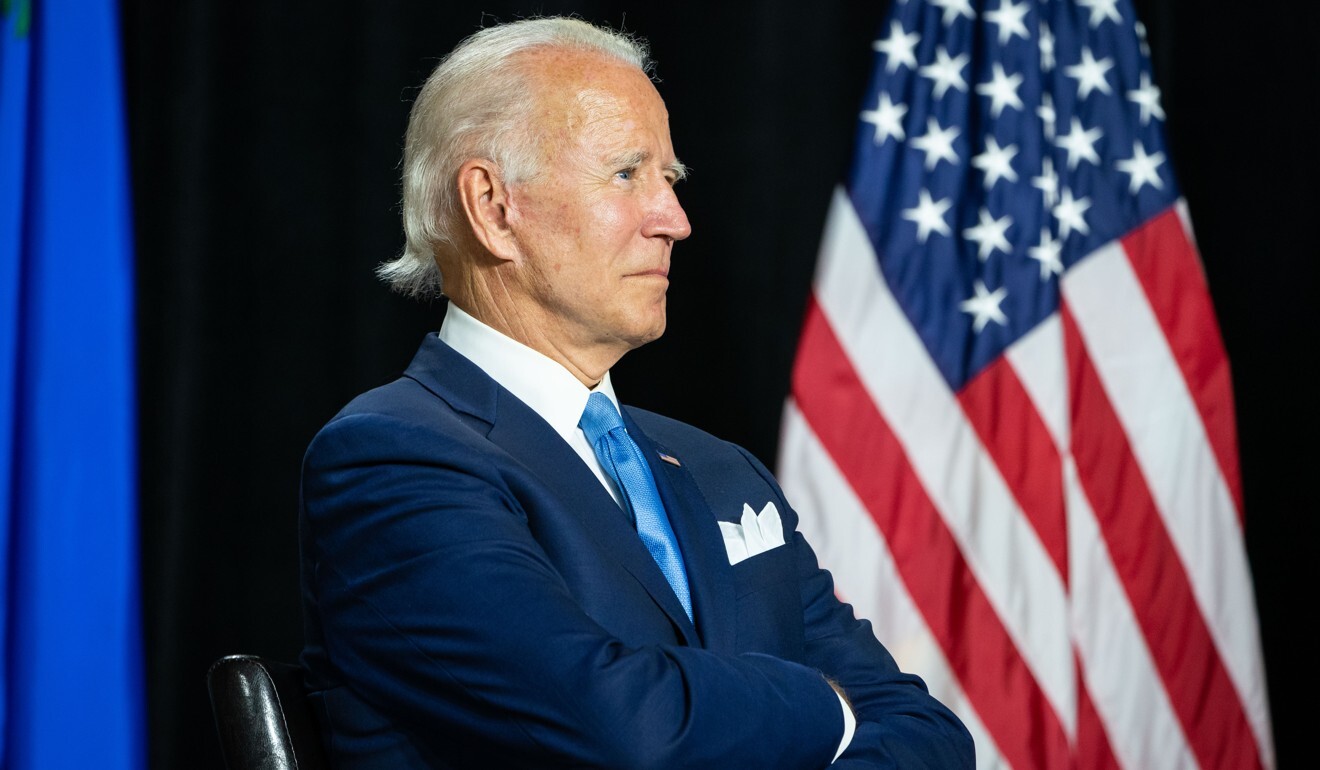
While public opinion and international backlash have been building against China since the outbreak of the coronavirus pandemic, Zheng, who frequently travels and works from abroad, sees the strength of the Chinese system and how it has responded to the pandemic.
“I think except for the initial fumbling, the pandemic has added to the credit of the Chinese government, especially after I travelled out of the country and saw how disease control is around the world,” he said.
Zheng added that China was right in taking draconian measures in an early stage to contain the virus, enabling it to reopen now as the disease comes under control compared with stumbling in other countries.
US officials now call Xi ‘general secretary’, not ‘president’ – but why?
“One-party system or not, the only thing that matters to me is the economy … though I think the Chinese government could have done a better job,” said Zheng.
The debate on China is being used by Trump and the Republicans as part of an increasingly ideological issue in the upcoming US presidential elections, said Shi Yinhong, a US specialist with Renmin University in Beijing.
“With or without the China issue, the Republicans will accuse Democrats of practising socialism – a main source of grass roots populist’s grievances against them, along with globalisation and liberalism,” said Shi. “So they might believe connecting the issue with Communism in China would help.”
“I doubt that strategy might work at all, what really matters for American voters in the short term is the response to the pandemic and recovery of the US economy,” said Shi.
While Trump himself is not an ideologue and seldom used words such as “communism” even in attacking China, his hardball politics against Beijing have created space for strategic hawks in his camp to focus on confronting China, Shi said.
Months before the election, the acronym “CCP” appeared in most of Trump officials’ policy announcements on Huawei, Xinjiang and Hong Kong.
Meanwhile, Chinese President Xi Jinping is now referred to by US officials, especially the State Department, as the general secretary of the Chinese Communist Party. A bill has been introduced to the US House of Representatives that seeks to prohibit the federal government from calling Xi “president”, to avoid the appearance that he was democratically elected.
Pompeo warns of Chinese, Russian influence as he begins central Europe tour
The focus of hawkish forces within the Trump administration could carry great costs for the US, said Ryan Hass, who directed China policy at the National Security Council staff in the Obama administration.
“Beijing has judged Pompeo’s comments as a clear signal of American hostility toward continued Communist Party rule,” said Hass, now a foreign policy fellow with the Brookings Institute in Washington.
“This judgment has lowered the cost and risk to Beijing of taking actions that America opposes because it has concluded that the Trump administration already is entrenched in an adversarial posture toward it,” he said.
So far, Beijing has reacted furiously to the challenge to the CCP’s legitimacy to rule China by Pompeo and others.
Foreign Minister Wang Yi has said that anyone attempting to break the bond between the Communist Party and the Chinese people was “making themselves enemies of the 1.4 billion Chinese people”.
US ‘considering’ measures to let Hongkongers settle in country
“The Chinese people would never agree with any people and forces who try to distort the history of the Chinese Communist Party or vilify the nature and purpose of the Communist Party,” he said.
Chinese officials have frequently cited a study in July by Harvard’s Kennedy School that said 93.1 per cent of Chinese citizens were satisfied with the Chinese central government in 2016. The approval dropped for lower-level governments, with the township level having the lowest satisfaction rate, 70.2 per cent.
It is a reality that is well understood by China hands.
“The CCP has been around for quite a while, it has a pretty big reserve of legitimacy among the Chinese people themselves,” Susan Thornton, former acting assistant secretary of state for East Asian and Pacific Affairs in the Trump administration, said on a recent podcast.
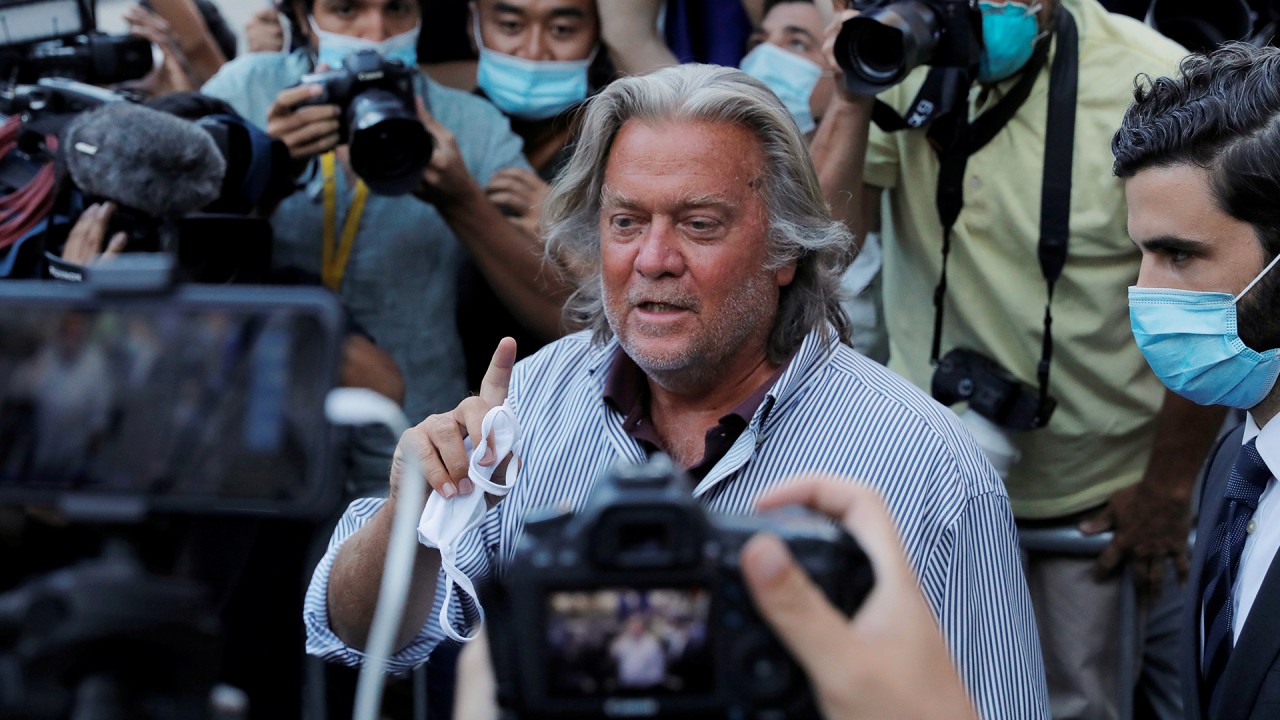
02:30
Former Trump aide Steve Bannon charged with defrauding donors in online border wall fundraiser
Thornton recognised the information control and propaganda behind the public support of the party, but said that support was real.
“The reality is, in my view, if there was an election held for the China leader today, then Xi Jinping would win that election,” she said.
Among some audiences in China, Trump’s dramatic style of politics is undermining the soft power of the United States.
“He’s obviously trying to divert attention after he did a lousy job on Covid-19 by acting tough in foreign policy,” said Joy Zhuang, a Beijing-based employee of a major Chinese internet company.
Zhuang, who lived in the United States for seven years before returning to China in 2017, said she was disappointed with the US on a wide range of issues, including the fact that there is a debate about wearing masks during the pandemic.
US starts to change its thinking on wearing protective masks
Zhuang referred to Representative Roger Marshall, a Kansas Republican who is seeking re-election this year. He is a medical doctor but did not wear a mask meeting voters in July because “Kansans don’t like the mask”.
“It’s supposed to be a country that gathers the world’s smartest people, not a country that would argue about whether or not to wear a mask,” she said. “They should be smart enough to know.”
Trump’s restrictions on people-to people exchanges between China and the US, imposed because of espionage fears, has also added to the loss of America’s soft power in Chinese minds, she said.
“I think the next generation of Chinese will be far less curious about the United States,” Zhuang said. “Visas for Chinese students are being blocked and China would have to retaliate, what’s left with the people-to-people exchange?”
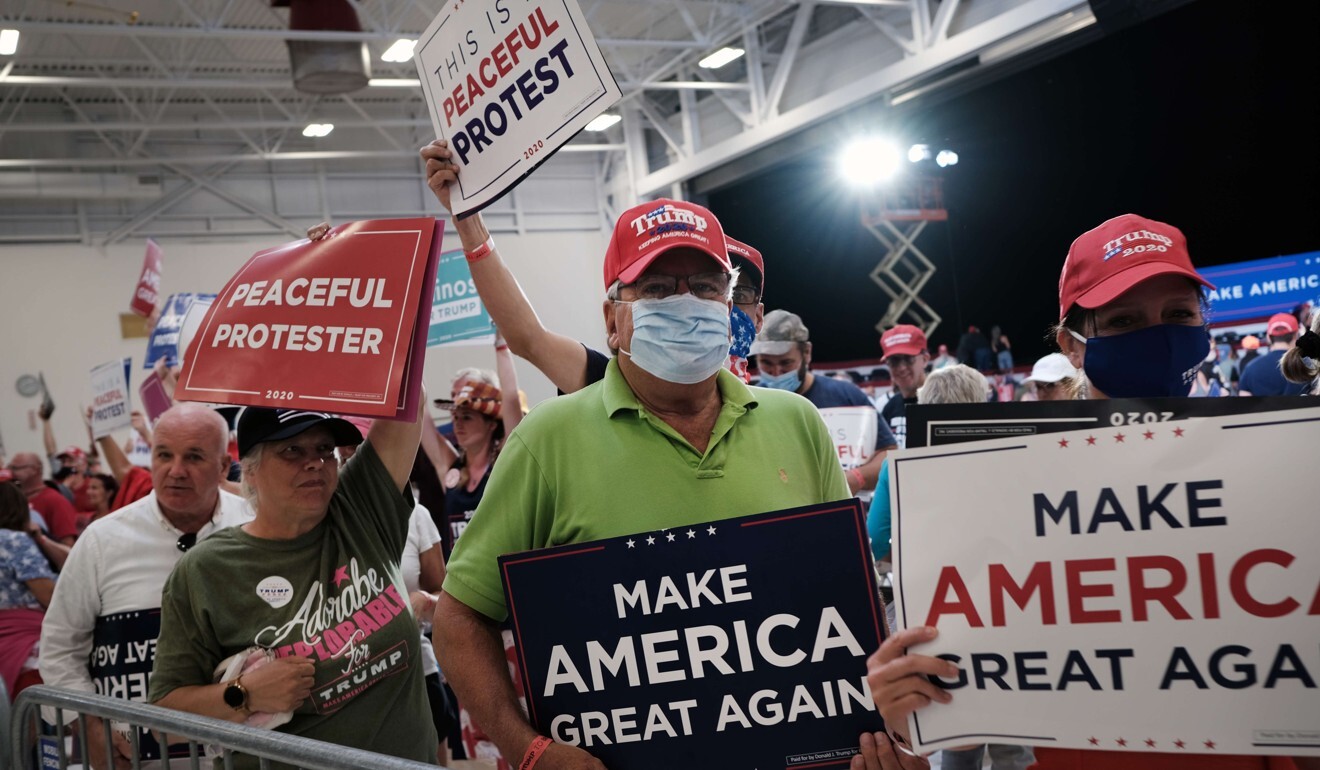
The Trump campaign has tried to paint the Democratic Party’s nominee, former vice-president Joe Biden, as weak towards China, a portrayal widely disputed by analysts and the Biden camp.
During a Democratic primary debate in February, Biden called Xi a “thug” responsible for human rights violations in Xinjiang and Hong Kong. In late August, his campaign said the candidate stood against China’s Xinjiang policies “in the strongest terms” and called Beijing’s actions “genocide”.
Experts have also pointed to the notable omission of the “one China principle” from the Democrats’ 2020 platform, a signal suggesting that Biden might also be harsh with Beijing on the Taiwan issue.
Shi Yinhong, the US specialist at Renmin University in Beijing, said he expected that a Biden administration would continue to pressure Beijing over issues including Xinjiang, Hong Kong and decoupling in the technology sector.
“The biggest difference [compared with Trump] might be that Biden will not be after a regime change for China, and will be more cautious about a military conflict,” he said.
You can read the first story in the series here, the second here, and the third here.











